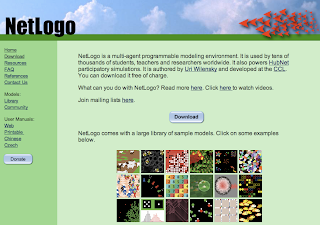Interesting Article that looks at at what is needed beyond testing to improve outcomes in schools.
http://www.gse.harvard.edu/~clg/pdfs/EdWeek7Disciplines.pdf
Professional Blog of Peter Jeans, Assistant Principal of Noble Park Secondary College.
Monday, July 18, 2011
Saturday, July 16, 2011
High Schools that have improved.
This interesting publication from Harvard University details how some struggling High Schools in the U.S. managed to turn around student outcomes and increase their value add. A good read for any secondary school educator.
Full Text Article
Full Text Article
How do teachers help students improve their work.
Students comment on how teachers improve their work.
How do teachers help students improve their work. by Peterjeans2
Friday, July 15, 2011
Spotting the difference between whale sharks
Spotting the difference between whale sharks
Divers worldwide upload photos to be identified by technology used to map constellations and star-fields.
Divers worldwide upload photos to be identified by technology used to map constellations and star-fields.
Tuesday, July 12, 2011
Simulators in Education 2
Agent Based Simulators
Agent based simulation is a fascinating approach to simulation where little objects (agents) all interact on screen as independent entities. They are particularly useful in simulating ecosystems like Predator-prey-producer systems, or ant colonies et al. They can also model social systems, art, physical systems and much more! Because each agent acts independent of each other, yet can respond to each other, every time a simulation is run, things can turn out a bit different (much like the real world).
NETLOGO
Netlogo runs both on the web, or you can download it to your local windows or mac computer. It has many many simulation that you can run. It does not incorporate activities that students fill in and upload to the teacher, but it doesn't take too long to whip up a worksheet to go with the site.
Main Features
Agent based simulation is a fascinating approach to simulation where little objects (agents) all interact on screen as independent entities. They are particularly useful in simulating ecosystems like Predator-prey-producer systems, or ant colonies et al. They can also model social systems, art, physical systems and much more! Because each agent acts independent of each other, yet can respond to each other, every time a simulation is run, things can turn out a bit different (much like the real world).
NETLOGO
Netlogo runs both on the web, or you can download it to your local windows or mac computer. It has many many simulation that you can run. It does not incorporate activities that students fill in and upload to the teacher, but it doesn't take too long to whip up a worksheet to go with the site.
Main Features
- Lots of models
- Randomness/chaos is introduced to different models
- Some activities can be generated where each student controls their own agent.
- Can run online or on your local school network
Modelling in the classroom.
If you have yet to use modelling software in the classroom you are really missing out in powerful ways for students to learn stuff.
One of the benefits of modelling is that it allows students to visualise and interact with the world in a way that is not possible in the traditional classroom. Students can play with models of ecosystems, molecules or other systems and see what will happen dynamically over time. This is difficult to do in the real world.
There are a number of different (FREE) solution around and I will cover these in a number of blogposts.
Tool 1 - Molecular Workbench
This outstanding online solution features a range of pre-made models and activities in the areas of chemistry, physics biology and mechanics that you can plug straight in to your classroom. The simulator runs by using basic molecular rules to simulate the interaction of physical (biochemical etc) objects from the atomic to macro scale (and a bit larger).
Features:
One of the benefits of modelling is that it allows students to visualise and interact with the world in a way that is not possible in the traditional classroom. Students can play with models of ecosystems, molecules or other systems and see what will happen dynamically over time. This is difficult to do in the real world.
There are a number of different (FREE) solution around and I will cover these in a number of blogposts.
Tool 1 - Molecular Workbench
This outstanding online solution features a range of pre-made models and activities in the areas of chemistry, physics biology and mechanics that you can plug straight in to your classroom. The simulator runs by using basic molecular rules to simulate the interaction of physical (biochemical etc) objects from the atomic to macro scale (and a bit larger).
Features:
- A teacher account allows students to submit activities to the teacher once completed.
- Students and teachers can also modify or make their own models (a richer more complex activity than using someone elses). This doesn't look to complicated.
- Runs on windows in a browser or via a downloaded browser for the MAC
Friday, July 8, 2011
Sunday, March 13, 2011
CSI School
I wrote this book a few years ago as an update to Forensick Science - sick science for schools, that was used by a number of keen forensic science teachers around Australia.
With the advent of ebooks - i have decided to release it as an ebook with some pretty good purchasing options. It will be interesting to see if it is possible to annotate it on a tablet device or ipad?? If you want a paper book this too is available, delivery is included in purchase price.
With the advent of ebooks - i have decided to release it as an ebook with some pretty good purchasing options. It will be interesting to see if it is possible to annotate it on a tablet device or ipad?? If you want a paper book this too is available, delivery is included in purchase price.
Subscribe to:
Comments (Atom)

